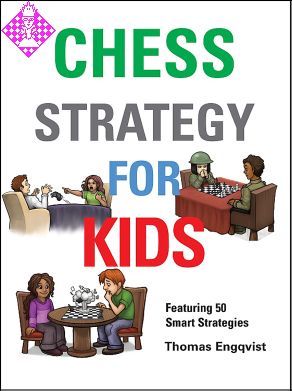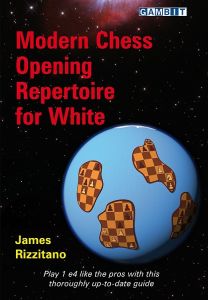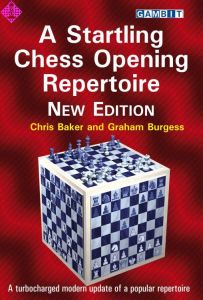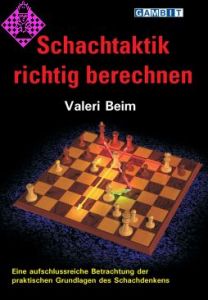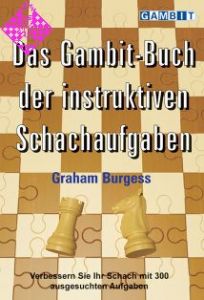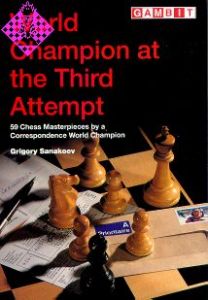Article Number
LMENGCSFK
Author
Chess Strategy for Kids
128 pages, hardback, Gambit, 1. edition 2016
From the series »Chess for Kids«
So you have learned how to play chess, studied tactics and know some basic endgames and openings. What’s next?
The glue that binds it all together is strategy. By forming a good plan, chess-players seize strong points on the board and target the opponent’s weaknesses. Experienced player and teacher Thomas Engqvist shows that it all depends on logic that can be grasped by players of any age. He explains how to identify the right strategy in a wide range of typical situations. With his guidance, you will soon be finding good plans on your own and then it will be time to demonstrate your tactical mastery!
He first teaches the importance of the central squares and the basics of pawn-play, before examining the role of each of the pieces and how they are affected by the pawn-structure. Finally we see how to use them together to launch attacks of many different types. You then get a chance to test your new strategic skills in 54 exercises, all with full solutions.
Chess Strategy for Kids provides a complete course that will help readers understand the potential of their pieces and play more purposefully in their games. Chess will stop feeling like a series of random events as you take command of your forces and direct them like a general in charge of an army.
Thomas Engqvist is an International Master from Sweden with more than three decades’ experience of international chess. He is a successful chess trainer and has also made notable contributions to chess theory. Engqvist is editor of the website schacksnack.se and teaches at a school in the Stockholm area.
The glue that binds it all together is strategy. By forming a good plan, chess-players seize strong points on the board and target the opponent’s weaknesses. Experienced player and teacher Thomas Engqvist shows that it all depends on logic that can be grasped by players of any age. He explains how to identify the right strategy in a wide range of typical situations. With his guidance, you will soon be finding good plans on your own and then it will be time to demonstrate your tactical mastery!
He first teaches the importance of the central squares and the basics of pawn-play, before examining the role of each of the pieces and how they are affected by the pawn-structure. Finally we see how to use them together to launch attacks of many different types. You then get a chance to test your new strategic skills in 54 exercises, all with full solutions.
Chess Strategy for Kids provides a complete course that will help readers understand the potential of their pieces and play more purposefully in their games. Chess will stop feeling like a series of random events as you take command of your forces and direct them like a general in charge of an army.
Thomas Engqvist is an International Master from Sweden with more than three decades’ experience of international chess. He is a successful chess trainer and has also made notable contributions to chess theory. Engqvist is editor of the website schacksnack.se and teaches at a school in the Stockholm area.
| EAN | 9781910093870 |
|---|---|
| Weight | 360 g |
| Manufacturer | Gambit |
| Width | 17.8 cm |
| Height | 23 cm |
| Medium | Book |
| Year of Publication | 2016 |
| Author | Thomas Engqvist |
| Series | Chess for Kids |
| Language | English |
| Edition | 1 |
| ISBN-13 | 978-1910093870 |
| Pages | 128 |
| Binding | hardback |
| Name | Gambit Publications Ltd. |
|---|---|
| Adresse | 27 Queens Pine, Bracknell Berkshire RG12 OTL Großbritannien |
| Internet | www.gambitbooks.com |
| info@gambitbooks.com |
Verantwortlicher Importeuer:
| Name | Schachversand Niggemann |
|---|---|
| Adresse | Schadowstraße 5 48163 Münster Deutschland |
| info@schachversand.de | |
| Internet | www.schachversand.de |
005 Introduction
006 Algebraic Notation
008 How to Study Strategy
The Centre, Development and Space
012 1) Control the Centre
014 2) Develop Your Pieces
016 3) The Classical Centre
018 4) The Little Centre
020 5) Other Types of Pawn-Centre
022 6) Tension in the Centre
024 7) Piece Control of the Centre
026 8) Neutralization of the Centre
028 9) Piece Centralization
030 10) Space Advantage
Pawns
032 11) United Pawns
034 12) The Pawn-Chain
036 13) The Passed Pawn
038 14) The Backward Pawn
040 15) Doubled Pawns
042 16) The Isolated Pawns
044 17) The Isolated Pawn Couple and Hanging Pawns
046 18) Pawn-Islands
Minor Pieces
048 19) Dominant Knights
050 20) Creating an Outpost for a Knight
052 21) Dominating the Knight
054 22) The Superfluous Knight
056 23) Bishop against Knight
058 24) Open Diagonals
060 25) Good and Bad Bishops
062 26) Opposite-Coloured Bishops
064 27) Restricting the Bishop with the Pawns
066 28) The Advantage of the Bishop-Pair
Major Pieces
068 29) Open Files and Half-Open Files
070 30) Play on the Ranks
072 31) The Rook-Lift
074 32) Handling the Major Pieces
076 33) An Exposed King
078 34) The King's Fortress
080 35) The Active King
General Strategy
082 36) Exchanging Material
084 37) Weak and Strong Squares
086 38) Piece-Activity
088 39) Harmony and Coordination
090 40) Positional Pawn Sacrifices
092 41) Positional Exchange Sacrifices
094 42) Pawn-Breaks
096 43) Overprotection
098 44) Play on the Wings
100 45) Pawn-Majorities
102 46) Further Advanced Pawns
104 47) The Minority Attack
106 48) Flank Attack with a Secure Centre
108 49) The Principle of the Two Weaknesses
110 50) Connecting Opening, Middlegame and Endgame
112 Name the Strategic Concept
116 Strategic Skills Exercises
118 Solutions to Test Positions
122 Glossary of Strategic Terms
126 Great Chess Strategists
127 Suggestions for Further Study
006 Algebraic Notation
008 How to Study Strategy
The Centre, Development and Space
012 1) Control the Centre
014 2) Develop Your Pieces
016 3) The Classical Centre
018 4) The Little Centre
020 5) Other Types of Pawn-Centre
022 6) Tension in the Centre
024 7) Piece Control of the Centre
026 8) Neutralization of the Centre
028 9) Piece Centralization
030 10) Space Advantage
Pawns
032 11) United Pawns
034 12) The Pawn-Chain
036 13) The Passed Pawn
038 14) The Backward Pawn
040 15) Doubled Pawns
042 16) The Isolated Pawns
044 17) The Isolated Pawn Couple and Hanging Pawns
046 18) Pawn-Islands
Minor Pieces
048 19) Dominant Knights
050 20) Creating an Outpost for a Knight
052 21) Dominating the Knight
054 22) The Superfluous Knight
056 23) Bishop against Knight
058 24) Open Diagonals
060 25) Good and Bad Bishops
062 26) Opposite-Coloured Bishops
064 27) Restricting the Bishop with the Pawns
066 28) The Advantage of the Bishop-Pair
Major Pieces
068 29) Open Files and Half-Open Files
070 30) Play on the Ranks
072 31) The Rook-Lift
074 32) Handling the Major Pieces
076 33) An Exposed King
078 34) The King's Fortress
080 35) The Active King
General Strategy
082 36) Exchanging Material
084 37) Weak and Strong Squares
086 38) Piece-Activity
088 39) Harmony and Coordination
090 40) Positional Pawn Sacrifices
092 41) Positional Exchange Sacrifices
094 42) Pawn-Breaks
096 43) Overprotection
098 44) Play on the Wings
100 45) Pawn-Majorities
102 46) Further Advanced Pawns
104 47) The Minority Attack
106 48) Flank Attack with a Secure Centre
108 49) The Principle of the Two Weaknesses
110 50) Connecting Opening, Middlegame and Endgame
112 Name the Strategic Concept
116 Strategic Skills Exercises
118 Solutions to Test Positions
122 Glossary of Strategic Terms
126 Great Chess Strategists
127 Suggestions for Further Study
More from Gambit
-
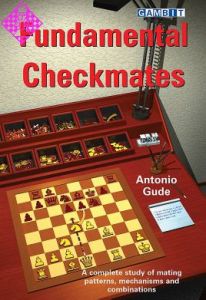 Fundamental Checkmates€23.95
Fundamental Checkmates€23.95 -
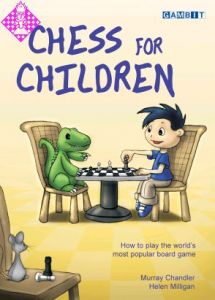 Chess for Children€16.95
Chess for Children€16.95 - More from Gambit

